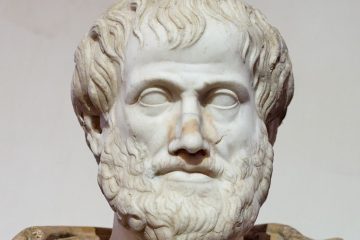As always, I write for myself, but if this helps anyone, that would of course make me smile. The trigger of these thoughts is a conversation with a professor I admire. She asked me why I became so attracted to Aristotle as a freshman at Princeton.
to strive for a big container
There is a concept in Japanese that I quite like: 器の大きい人 (utsuwano ōkii hito). I grew up with my mother telling me I must develop into one. Literally, it means “a person whose container is large”. This might sound funny, but its meaning has quite some gravitas. The large-containered person is the person who is unbothered by trivial grievances. With their great heart they forgive others easily. They are generous and kind. They respond deliberately and appropriately to any situation. They do all this, because they see life in its big picture, not with a narrow focus on the circumstance at hand. And this Japanese concept shares a striking resemblance to the virtue Aristotle calls megalopsychia: ‘greatness of soul’.
Growing up in a traditional Japanese family with a medical, STEM-focused childhood, I was startled by the resemblance of Aristotle’s virtue theory to significant portions of my own Japanese values when I enrolled myself in what I thought would be my only humanities course at Princeton. In Aristotle’s conception of courage, loyalty, moderation, and in much else, I saw a convergence of concepts from the 4th century BC foundation of Western thought and a 2000 AD island nation across the world. Such was my pull into Aristotle as an eighteen-year-old.
In the years since, I have had the immense privilege of studying Aristotle’s philosophy, and to do this I learned ancient Greek, a language inaccessible for most people alive today, even to modern Greek people! And during my undergraduate years, I learned to fluently speak Mandarin Chinese and took an ancient Chinese philosophy class where I found many more convergences between thoughts East and West. Upon graduating from Princeton I switched continents to pursue an ancient philosophy masters at the Munich School of Ancient Philosopy, a part of the University of Munich (LMU) in Germany. I hoped to study Aristotle more and learn German to better grasp the secondary literature surrounding his works. I made these decisions out of passion, but I recognize that they are not ones most students feel free to make.
At the start of the COVID-19 pandemic, which began amidst my second year in Munich, I built my Instagram I named AristotleWalks (after which this website is named) to share Aristotle’s ethical, political, and rhetorical theories, because I thought they could help the political chaos of 2020 and alleviate what I saw and see as a dearth of psychologically helpful value theory in public forums. Indeed, my project has evolved into hundreds of engaging conversations with my followers all around the world—from US high school dropouts to professors of astrophysics—all searching for intellectual and emotional harmony in their world views. These conversations lead me to think that robust philosophical theories can structure every mind to better experience our troubling, complex world.
I thus see it as a sort of mission to make philosophy more accessible and digestible for those who are not in the privileged position to engage with it academically. For my own joy I see myself invested in pursuing philosophy, but I also see myself utilizing my various language skills and fortuitous investment into philosophy thus far to somehow share more of it with others. On my social media platform, in my personal interactions, in teaching, and in future methods I’m sure I will come up with, I hope to share Aristotle, to marvel at the convergences of ideas from all around the world (Vielleicht ist ‘Weltweisheit’ wirklich für die ganze Welt!), and hopefully come up with a few cool ideas of my own along my way to becoming a big-containder-ed person.

